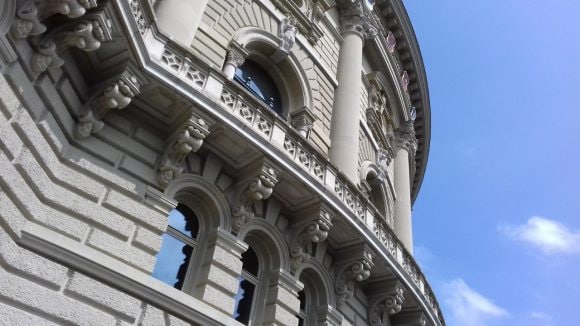
Since the 1990s, there have been repeated proposals and appeals to abolish the taxation of imputed rental value in Switzerland. Unlike in most European countries, under Swiss tax law the use of residential property constitutes a taxable “natural income.” In practice, the tax is unpopular and difficult to understand because the income is purely hypothetical (see box “What is imputed rental value?”). Back in 2017, the relevant Committee of the Council of States therefore proposed a change to the system.
Key points of the discussion
Key points of the discussion
Further deliberations in the National and Council of States showed that the proposal had some support. In the summer of 2019, for example, the initiative of the Council of States was followed by a broad-based consultation which focused on the following points:
- No maintenance costs can be deducted for homes that are exempt from imputed rental value.
- Imputed rental value is eliminated only for the main residence, but not for holiday apartments or houses.
- In the case of rented properties, allowable costs (mortgage interest, maintenance costs, administrative costs, etc.) can still be deducted, as rental income remains taxable.
- Those who buy residential property for the first time can deduct part of the mortgage interest in the first ten years. This “first buyer deduction” is CHF 5,000 in the first year or CHF 10,000 for married couples. The deduction would gradually reduce every year over a period of ten years.
- In the case of direct federal tax, the deductions for measures taken to preserve monuments, save on energy costs and protect the environment, are eliminated. The same applies to demolition costs for replacement new builds. The cantons can retain all of these optional deductions.
- For measures that promote energy saving and environmental protection, each canton can decide on taxation within their own cantonal tax legislation.
Lack of agreement on deductions for mortgage interest
Lack of agreement on deductions for mortgage interest
Although there was broad agreement on most of these key points in Parliament, no consensus could be reached on deductions for mortgage interest. The committee presented five options for discussion. These differed according to the amount of mortgage interest deductions in relation to taxable capital gains, and ranged from full deduction to complete abolition without replacement.
“We are against the complete abolition of the mortgage interest deduction,” explains Katja Stieghorst, a lawyer at the Homeowners Association (HEV) Switzerland. The deduction of private debt interest in return for taxation of capital gains is “consistent with the system and would treat all taxpayers equally.” The following basic principle would then arise: If a property owner receives taxable income, he or she should be able to deduct their ownership expenses in return. The type of income is irrelevant, be it revenue from securities, savings or real estate.
What is imputed rental value?
What is imputed rental value?
Imputed rental value is the notional rent that an owner would receive if they rented out their own home and counts as taxable income. This value is determined by the cantonal tax authority and must be at least 60 percent of the average market rent according to the Federal Court. Each canton is free to calculate imputed rental value as it sees fit. The current system generates high tax revenues for the federal government, cantons and municipalities but the calculation, adjustment and implementation of this tax all require a great deal of administration.
Mortgage interest and maintenance costs are tax-deductible to compensate for the tax on imputed rental value. In the case of maintenance costs, property owners across all cantons can choose each year whether to claim the effective costs or a lump-sum amount. In most cantons, this amount is between 10 and 20 percent of the imputed rental value, depending on the age of the property.
Change of system: Winners …
Change of system: Winners …
Changing the system would most benefit those homeowners who have almost repaid their mortgage and who do not invest heavily in the maintenance of their home and therefore cannot claim large deductions. Pensioners in particular would benefit because although their incomes almost always fall after retirement, the taxable imputed rental value of their property remains the same. The impact of taxation of imputed rental value in relation to income is then higher. For families with children and working parents, on the other hand, the tax relief would be much lower.
The age of the real estate also has tax implications. While there will not be much to deduct for maintenance and renovation costs in the case of new properties, owners usually have to invest large sums years or decades later. Renovations and maintenance can significantly reduce income taxes, provided the system that allows deductions for property maintenance is retained.
… and losers
… and losers
Buyers of older properties will likely be at a disadvantage. Those who buy an older house and invest heavily in renovations will no longer qualify for substantial tax relief on these expenses. Both the construction industry and economists expect fewer incentives for property maintenance. A likely consequence is that the price gap between new construction and older properties will widen.
Interest rates are key
Interest rates are key
The impact on taxes for private households, but also on the confederation, cantons and municipalities, is largely dependent on interest rate levels. While mortgage rates are low, the deductions for many homeowners are lower than the tax on the imputed rental value. A change of system would be very welcome for them. Only with significantly higher mortgage rates of 3 or 3.5 percent would the deduction for mortgage interest roughly offset the tax on imputed rental value. In this case, a change of system would make no difference for many owners in terms of taxation.
The cantons are seeing a rise in imputed rental values
The cantons are seeing a rise in imputed rental values
The Federal Court requires that the imputed rental values are at least 60 percent of a comparable market rent. In recent years, some cantons have adjusted their own imputed rental values. As Katja Stieghorst from HEV Switzerland explains: “Under the current system, it can be assumed that imputed rental values will increase in the medium term.” Although the cantons do not adjust the relevant formulas and calculation methods to current conditions every year, where market values are increasing, taxable imputed rental values will also increase, with some delay.
Outlook
Outlook
The latest statements from the Federal Council and the Council of States as of August and September 2021 show that opinions still vary greatly. For example, there is no consensus about future tax relief on debt interest or on whether the imputed rental value should also be abolished for vacation properties.
Further deliberations on the planned amendment to the law will drag on even longer. Any change to the system will come into effect in 2023 at the earliest.

